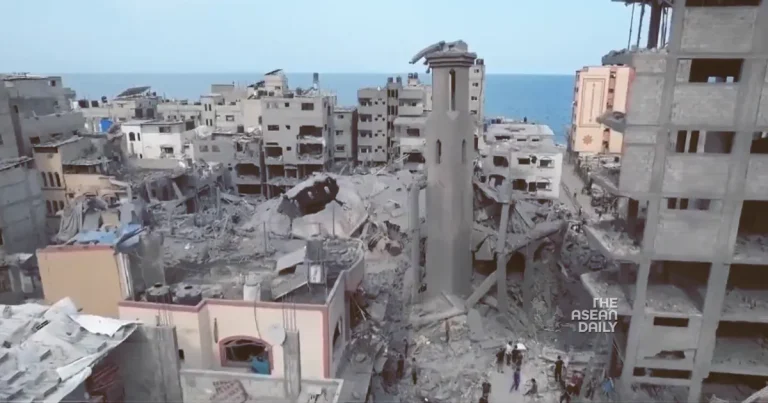16-10-2023 (BANGKOK) The Israel-Hamas conflict has claimed the lives of four more Thai nationals, bringing the total Thai death toll to a harrowing 28, with 16 individuals wounded, and 17 others held hostage, as confirmed by Prime Minister Srettha Thavisin.
Prime Minister Thavisin, addressing the media after presiding over a crucial Rapid Response Centre (RRC) meeting held at the Foreign Ministry, conveyed the volatile nature of the situation. He emphasized the government’s unwavering commitment to ensuring the safe return of all Thai workers by the end of this month.
A pressing challenge, however, lies in ramping up the number of repatriation flights. At present, commercial airlines are planning a total of 32 flights, with the capacity to transport around 5,700 individuals back to their homeland.
Regrettably, the current flight arrangement falls short of meeting the high demand. The number of evacuees who have registered surpasses 7,000 and may swell further as the conflict persists.
According to Prime Minister Thavisin, the sole feasible mode of evacuation is by air, given the closure of sea and road routes. The government is diligently working to move the workers to nearby nations, such as Jordan, from where they can continue their journey back home.
The Prime Minister also pledged to intensify efforts to negotiate the release of the abducted individuals, asserting that the Foreign Ministry is utilizing both formal and informal channels to secure their safe return.
He further assured that the Foreign Ministry is committed to addressing the paperwork predicament faced by those who have lost their passports.
Labour Minister Pipat Ratchakitprakarn stressed that the prime concern for the government is to secure additional aircraft for the repatriation mission. Currently, there are six aircraft, comprising two each from Nok Air and AirAsia, one from Thai Airways International, and another from the Air Force, designated for repatriation flights.
An overwhelming 7,540 Thai nationals have registered their presence at the embassy, with 7,446 expressing their intent to return to Thailand, while 94 individuals wish to remain in Israel. The Labour Minister conveyed this information while leading senior officials to welcome the third batch of 90 Thai workers at SC Park Hotel in Bangkok.
Mr. Ratchakitprakarn noted that another group of 137 Thai nationals is scheduled to arrive early the following morning at Don Mueang airport on a plane operated by the Royal Thai Air Force.
Some workers, though the exact number remains unconfirmed, will have the opportunity to travel on commercial flights, with their boarding passes or tickets serving as reimbursement for expenses.
In the coming days, the number of evacuees is expected to surge to approximately 400 individuals daily. To ensure the smooth repatriation of all 7,000 Thais who registered to return, fifteen officials from the Labour Ministry and the Foreign Ministry have been dispatched to Israel to coordinate the efforts.
The Labour Ministry is also in discussions with Israeli employers and job placement firms, exploring options for workers who wish to return before the conclusion of their employment contracts, as well as those considering new job prospects in different countries.
Chaiya Boonsang, aged 39 and one of the returnees, shared a harrowing account of how he survived the Hamas attack on October 7. He narrated how they barricaded the factory door and sought refuge on the rooftop as the militants attempted to breach their sanctuary. For three days, they endured without electricity or water, desperately attempting to contact the embassy for assistance.
“I was solely focused on survival the moment I fled to the rooftop. The fear of losing my life was overwhelming. It was the most violent attack I’ve experienced during my time there,” Mr. Chaiya recollected.
Having left for work on a farm in Israel in August last year under a five-year contract, Mr. Chaiya, now safely reunited with his family, expressed his intention to seek employment within Thailand, with no inclination to return to Israel, given the tumultuous circumstances. His decision is largely influenced by the economic repercussions of the Covid-19 pandemic.




